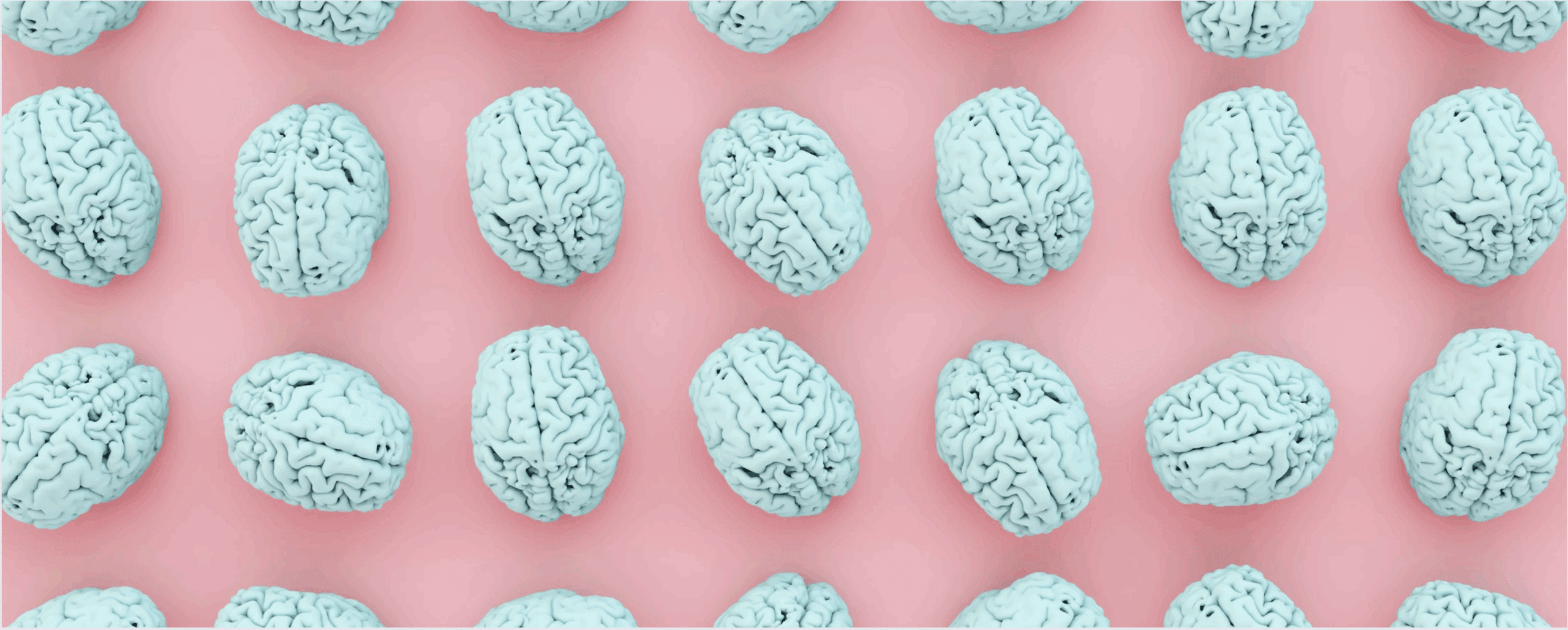Cocaine, often referred to by its street name “coke,” is a powerful and notorious drug that made its mark in the world of substance abuse long ago. Its effects on the brain and body are profound, and its addictive potential is undeniable. Understanding some basics about the drug, as well as cocaine withdrawal symptoms and cocaine treatment, can bring awareness to its addictive nature and negative impact.
What Is Cocaine?
Cocaine is a strong central nervous system stimulant that comes from the leaves of the coca plant in South America. It’s a crystalline powder with a bitter taste that can be ingested through various methods, including snorting, injecting, or smoking. Cocaine is known for its ability to induce intense euphoria, increased energy, and heightened alertness.
According to the Substance Abuse and Mental Health Services Administration (SAMHSA), approximately 5.5 million people aged 12 and older reported using cocaine in the United States in 2020. Cocaine abuse often begins during adolescence, and it remains an issue among young adults. Globally, cocaine production and sales remain a significant problem.
Cocaine is highly addictive. It’s classified as a central nervous system stimulant, which means it increases the levels of certain neurotransmitters in the brain, such as dopamine. This leads to feelings of pleasure and alertness. However, these effects are short-lived, often followed by a “crash” and a craving for more of the drug. The cycle of cocaine abuse and withdrawal contributes to its addictive nature.
Forms of Cocaine
Cocaine is available in several forms, including:
- Powder Cocaine: The most common form, often snorted or dissolved for injection
- Crack Cocaine: Named for the crackling sound it makes when heated, this crystalline form of cocaine is typically smoked
- Freebase Cocaine: Another smokable form of cocaine, freebase has been chemically modified for a more intense high
What Are Some Signs and Symptoms of Cocaine Abuse
Once cocaine releases all those feel-good chemicals, the brain is less likely to continue to release them on its own. Instead, the brain requires the presence of cocaine to feel a sense of well-being and people begin using the drug more often to achieve it. As the drug abuse continues, people often develop cocaine addiction.
In 2021, about 1.4 million people aged 12 or older had a cocaine use disorder in the past 12 months and approximately 24,486 people died from an overdose involving cocaine. Recognizing signs of cocaine abuse in a loved one or oneself is crucial for early intervention.
Some common signs of cocaine abuse include:
- Euphoria and Increased Energy: Bursts of energy, talkativeness, and intense euphoria
- Dilated Pupils: Pinpoint pupils, even in well-lit environments
- Paranoia and Anxiety: Intense anxiety and paranoia, often accompanied by erratic behavior
- Nasal Issues: Frequent snorting of cocaine can cause nasal congestion, nosebleeds, and loss of the sense of smell
- Financial Problems: Cocaine use can be expensive, leading to financial difficulties
Constant cocaine use can lead to tolerance which means people need to take more of the drug to achieve the same effects. This can cause people to binge cocaine. During a cocaine binge, people use as much of the drug as possible until running out. Abusing large amounts of any stimulant, especially cocaine, can harm a person’s ability to sleep. As a result, people abusing cocaine may stay awake for several days on end.
Can You Overdose on Cocaine?
Once addiction sets in, the risk of overdose increases. When an individual consumes more cocaine than their body is capable of handling, an overdose will occur — and not everyone knows what their limit is. Overdosing on cocaine can be extremely dangerous and requires immediate medical attention.
Signs that may indicate that someone is overdosing on cocaine can include the following:
- Overheating
- Sweating
- High blood pressure
- Rapid heart rate
- Fast breathing or hyperventilating
- Extreme chest pains
- Dehydration
- Fatigue and excess sleep
- Inability to wake up
- Nausea and profuse vomiting
- Irritability
- Mood swings
- Extreme anxiety or panic
- Confusion
- Delirium
- Paranoia
- Hallucinations
- Psychosis
- Body tremors
- Seizures
- Stroke
- Heart failure
If you suspect someone is overdosing on cocaine, call 911 immediately.
Symptoms of Cocaine Withdrawal
After developing cocaine dependence, the brain requires the drug to function “normally.” As a result, people who stop using the drug often experience intense cocaine withdrawal symptoms once the drug is no longer in their system.
The symptoms of cocaine withdrawal can include:
- Insomnia
- Fatigue and exhaustion
- Depression and anxiety
- Agitation and restlessness
- Intense cravings for cocaine
- Irritability and agitation
- Difficulty concentrating or focusing
- Muscle aches and pains
- Tremors or shaking
- Increased appetite and weight gain
- Fatigue and excessive sleeping
- Vivid and unpleasant dreams
- Suicidal thoughts or behaviors
These withdrawal symptoms can vary in intensity and duration, depending on factors such as the amount of cocaine used, the frequency of use, and individual body chemistry. In general, individuals going through cocaine withdrawal experience physical discomfort in addition to overwhelming psychological side effects. With that being said, some people may experience more severe symptoms than others.
What Are Cocaine Withdrawal Symptoms Like?
While the severity and duration of cocaine withdrawal symptoms vary from person to person, it is not a pleasant experience. For those wondering what cocaine withdrawal feels like, here are some of the most common examples:
- Fatigue: Many people experience extreme fatigue during the initial stages of withdrawal. This can make it difficult to function normally, leading to exhaustion and weakness.
- Depression: The crash period after cocaine can lead to feelings of sadness and hopelessness due to the sudden drop in dopamine levels in the brain.
- Anhedonia: After quitting cocaine people often experience anhedonia, a temporary but profound loss of pleasure and motivation.
- Anxiety: As dopamine levels fall, the brain may go into overdrive trying to compensate for the lack of stimulation. This can lead to anxiety and restlessness.
- Increased appetite: Cocaine suppresses appetite, so when a person quits cocaine, they may experience an increase in appetite as their body tries to rebalance itself.
- Agitation and irritability: The sudden lack of cocaine in the system can also lead to feelings of agitation and irritability as dopamine levels flatline.
- Insomnia: Difficulty falling asleep or staying asleep is a common symptom of cocaine withdrawal. This can also contribute to feelings of fatigue and irritability.
- Vivid dreams: Many people report having vivid and intense dreams during cocaine withdrawal. These dreams may be disturbing or unsettling.
- Cravings: One of the most difficult aspects of cocaine withdrawal is dealing with intense cravings. These cravings can be set off by environmental or emotional triggers, making it challenging to resist using again.
These cocaine withdrawal symptoms can make the early stages of recovery a difficult and uncomfortable process. The good news is that cocaine withdrawal symptoms typically peak within the first few days of abstinence and gradually decrease over time.
Cocaine Withdrawal Timeline
Depending on how long cocaine takes to leave the body, the onset of the withdrawal symptoms may vary from one person to another. As a result, cocaine withdrawal symptoms may begin anywhere from a few hours to several days after last use.
People often call this period “the crash,” and it can last up to one week. Other withdrawal symptoms may last for several weeks or months. Some find they experience strong cravings for the drug for a significant period of time while in protracted withdrawal.
Protracted withdrawal, also known as post-acute withdrawal syndrome (PAWS), is when withdrawal symptoms persist for months or even years after the last use of cocaine. This can be a challenging time where it may feel like the person is stuck in a constant battle with their addiction and cravings.
Get the help you need to begin your journey to recovery.
What To Expect In Cocaine Addiction Treatment
Aliya Health Group provides evidence-based care and individualized treatment plans tailored to your needs and preferences. Our cocaine addiction treatment offers a full continuum of care that includes medical detox and inpatient treatment as well as outpatient options.
Levels of care at our addiction and mental health treatment centers include:
- Medical detox program
- Residential treatment program
- Partial hospitalization program (PHP)
- Intensive outpatient program (IOP)
- Outpatient program (OP)
As you transition through the different levels of care, behavioral health professionals will help you address underlying issues like trauma, co-occurring disorders (dual diagnosis), and unhealthy thinking patterns that can lead to addiction. You’ll also learn relapse-prevention skills that support long-term addiction recovery from drug abuse.
Cocaine Detox
Detoxification is the first step on the path to recovery. Cocaine detox involves the supervised process of clearing the body of cocaine and managing withdrawal symptoms. To help people stay sober and get past the worst of cocaine withdrawal, experienced medical professionals provide 24/7 medical care and supervision. In doing so, these programs aim to ensure your safety and comfort during this critical phase of treatment and recovery.
Cocaine detox programs also offer inpatient housing, comfort medications, nutritional meals, evidence-based therapy, and support groups to alleviate some of the discomfort from cocaine withdrawal and establish relapse prevention skills.
Medication-Assisted Recovery for Cocaine Addiction Treatment
Medication-assisted treatment (MAT) may be an option for some individuals seeking recovery from cocaine addiction. While there are no FDA-approved medications specifically for cocaine addiction, medications used in MAT for opioid addiction, such as buprenorphine or naltrexone, may be considered to address underlying issues or cravings. These should only be prescribed and monitored by qualified healthcare professionals.
Residential Treatment
Residential treatment for cocaine addiction offers a structured and supportive environment where you can embark on your recovery journey. In these inpatient rehab facilities, you will live on-site so that you can focus entirely on your recovery without worrying about distractions and triggers.
In general, residential programs combine medical supervision with therapeutic interventions, such as individual therapy, group sessions, and holistic treatments, to address the physical and mental effects of cocaine addiction.
These cocaine rehab programs aim to foster a sense of community among residents while providing continuous support from experienced medical professionals. In doing so, residential treatment programs play an important role in helping you overcome cocaine addiction and rebuild your life on a foundation of sobriety.
Partial Hospitalization Program (PHP)
Partial hospitalization programs (PHPs) for cocaine addiction offer a structured yet flexible treatment option for individuals seeking intensive support without full-time residential care. These programs typically operate during the day, allowing participants to return home or to a sober living environment in the evenings. PHPs provide comprehensive therapy and support, including individual counseling, group therapy, and medical supervision. These cocaine rehab programs utilize evidence-based treatment services like cognitive behavioral therapy (CBT) along with complementary therapies like art and music therapy.
This level of care is particularly beneficial for those transitioning from inpatient treatment or those who need more support than the services found in traditional outpatient programs. By focusing on relapse prevention strategies, coping mechanisms, and the underlying causes of cocaine addiction, PHPs play a crucial role in guiding individuals towards long-term recovery and helping them rebuild their lives free from cocaine dependence.
Intensive Outpatient Program (IOP)
Intensive outpatient programs (IOPs) for cocaine addiction offer a structured yet flexible treatment option. An IOP offers support in overcoming your dependence on cocaine while providing time to tend to your daily responsibilities. These cocaine rehab programs combine evidence-based therapies such as individual therapy, group counseling, and life-skills training to maintain your progress in recovery.
IOPs are particularly beneficial for those who have completed a residential treatment program and are seeking ongoing support in their recovery journey. Intensive outpatient care can also help individuals whose cocaine addiction is less severe and can be managed without full-time supervision. For this reason, intensive outpatient treatment provides a critical bridge between inpatient care and complete independence. As you participate in an IOP, you can continue receiving support from your recovery while rebuilding your life free from addiction.
Outpatient Program (OP)
Traditional outpatient programs (OPs) for cocaine addiction offer a structured yet flexible approach to substance abuse recovery, allowing individuals to receive treatment while maintaining their daily responsibilities. For this reason, outpatient treatment is particularly beneficial for those seeking extra support in recovery without the need for more intensive care.
These programs typically include individual therapy and group counseling that focuses on practicing coping strategies and relapse prevention techniques. Outpatient cocaine rehab programs may also integrate family therapy sessions to repair relationships affected by addiction and enhance the support system crucial for long-term recovery. Overall, supportive outpatient environments foster a strong sense of community, encouraging you and your peers to share experiences and strategies for staying sober.
Comprehensive Care for Cocaine Addiction Recovery
At Aliya Health Group, we understand that each individual’s journey to recovery is unique. Our personalized treatment plans address the specific needs and goals of each client. Our cocaine addiction treatment programs prioritize:
- Holistic Healing: We emphasize physical, mental, and emotional well-being, offering holistic therapies such as yoga, mindfulness, and art therapy.
- Dual Diagnosis Treatment: We provide integrated treatment for co-occurring mental health conditions
to ensure comprehensive care. - Aftercare Planning: Our commitment to your recovery extends beyond the treatment program, with aftercare planning and ongoing support.
A better life is possible. If you or a loved one is struggling and looking for cocaine treatment options, call us today at 888-973-2078 for a free, confidential consultation for our cocaine rehab program.















